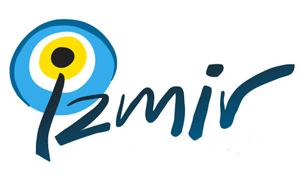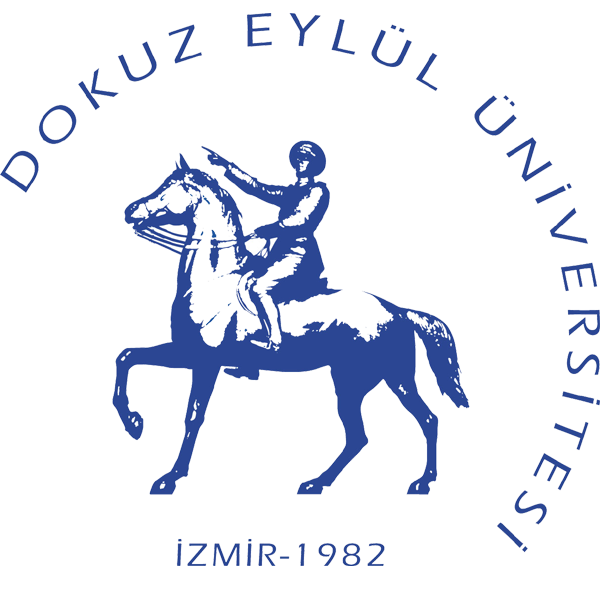Menu
Travel Info:
Participants
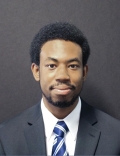 Solomon Abiola |
Solomon Abiola MS is a Health and Technology Research Associate at the University of Rochester Medical Center. There, under Dr. Ray Dorsey, MD, MBA and with colleagues he has helped lead the teams Parkinson Disease efforts on the mHealth front, and assisted in introducing new wearable and video analytics technologies to aid in telemedicine efforts. In addition to these efforts, he is leading a National Science Foundation funded mHealth initiative to develop means to fight infectious diseases using smartphones and big data as a continuation of his Princeton senior thesis. |
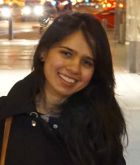 Chetana Bayas |
Chetana Rajeshsingh Bayas, originally from India, is currently pursuing her Masters in Biomedical Engineering at Drexel University, Philadelphia. She is a Research Assistant currently working on multiple projects in the field of microfluidics and robotics. She is investigating the applications of thermal imaging on microfluidic chips to study their efficiency and improve the same. She is also assisting undergraduate student researchers to investigate mechanical properties of muscle wires to integrate with robotic arms. During her undergraduate years, she chaired the IEEE-EMBS Student Branch and was responsible for organizing the first ever ‘Distinguished Lecturer Program’ for IEEE-EMBS in Mumbai. Also she was responsible for winning the Gold Medal for the Darrel Chong Award in 2014 for successfully leading college TechFest, ISAAC 2013. She has worked on designing image analysis tools for various environments to generate robust image acquisition systems. Her work on Hand Gesture Recognition was well received and was published in the International Journal of Research Studies in Science, Engineering and Technology [IJRSSET] in 2014.Her expectations from Summer School are to interact with people of different ideas and backgrounds, gain a holistic thought on biodesign and biocomplexity, and to form enduring friendship. Outside her lab, she can create magic with paints, enjoys long walks and occasionally indulges herself in cooking indian cuisine. |
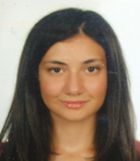 Elif Balcioglu |
Elif Balcioglu graduated from the Biomedical Engineering Department at Baskent University (Ankara, Turkey) in 2014. She is currently pursuing her Masters in Biophysics at Dokuz Eylül University. In 2013, Elif cpmpleted te Bimedical Engineering in an International Perspective Summer Course at Jade University of Applied Sciences in Germany. Her undergraduate thesis includes studies on use of electrospinning system for nanofiber tissue scaffold engineering. She is conducting her MSc. studies in Brain Biophysics Laboratories of Dokuz Eylul University. |
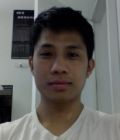 Thong Cao |
Thong Cao earned his BS degree in Biochemistry at the University of California - Davis. Thong is currently pursuing his Ph.D. in Biomedical Engineering at Cornell University under the direction of Dr. Michael R. King, the Daljit S. and Elaine Sarkaria Professor of Biomedical Engineering. His thesis work focuses on elucidating the binding dynamics of the selectin family of adhesion proteins, responsible for mediating the interactions between leukocytes and the inflamed endothelium. This research entails both computational modeling and in vitro flow-based adhesion assays. He is also involved in a research collaboration with Weill Cornell Medical College in New York City for the development of a diagnosis platform for patients with Antiphospholipid syndrome (APS). |
 Lauren Cardenas |
Lauren Cardenas is a rising senior at Columbia University, completing a B.S. in Biomedical Engineering, with a focus on cell and tissue engineering. During her recent career, Lauren has built a tech startup from the ground up, pioneered sustainable solutions for the recent Ebola epidemic, and innovated a web app that diagnoses brain tumors in MRI images at a rate of 900 images per hour, receiving recognition both locally, and internationally for her ventures. Outside of her entrepreneurial pursuits, she also take an active interest in the arts, including writing, photography, and art preservation, previously having worked as a painting conservation research assistant at the Metropolitan Museum of Art. |
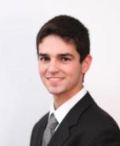 Alan Czemerinsk |
Alan Czemerinsk is a recent graduate from Columbia University in the City of New York, where he majored in Biomedical Engineering. He is very interested in studying and working at the crossroads of biology, engineering, and design, an increasingly important area. He hopes to work to design and build amazing creations that improve people’s lives. In his free time, Alan enjoys reading, bike riding, and watching documentaries about nature and technology. |
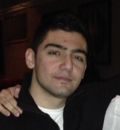 Firas Farah |
Firas Farah is a recent graduate of the Biomedical Systems engineering stream of the Engineering Science program at the University of Toronto. His research experience and interests are in the areas of neural engineering and neurorehabilitation. Starting in September, he will be pursuing a Masters at the Institute of Biomaterials and Biomedical Engineering at the University of Toronto. Outside of academics, he enjoys lifting weights and playing sports. ? |
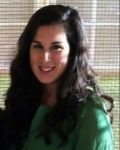 Nicole Ferraro |
Nicole Ferraro is originally from New Freedom, Pennsylvania, and currently studies at Drexel University as a 4th year BS/MS student in biomedical engineering with a concentration in biomedical informatics and a minor in computer science. She is currently working in Drexel's Biomaterials and Regenerative Medicine Laboratory, under the direction of Dr. Kara Spiller, on understanding differential gene expression in macrophage phenotypes during the wound healing process, specifically focusing on chronic wounds. Previously, Nicole has worked with various teams on diverse health informatics projects. These include Drexel's College of Computing and Informatics focusing on creating interactive information displays for fast-paced medical environments, and several teams at the Children's Hospital of Philadelphia, namely the Department of Biomedical and Health Informatics, working on database development, the Office of Patient Safety and Quality, creating discrete event simulations for the Center for Fetal Diagnosis and Treatment, and the Center for Childhood Cancer Research, looking at structural variants involved in the development and progression of neuroblastoma. After graduation in 2016, she hopes to pursue a PhD in computational biology or biomedical informatics. In her spare time, she enjoys being an active member of Drexel's Campus Activities Board and Delta Phi Epsilon sorority, as well as trying new vegetarian recipes and running. |
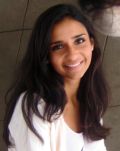 Avinash Gadok |
Avinash Gadok was born and raised in Mesa, Arizona, and received her bachelor’s degree in biomedical engineering from the University of Michigan in Ann Arbor, Michigan. She is currently a third year biomedical engineering PhD student in Dr. Jeanne Stachowiak’s laboratory at the University of Texas at Austin, where she works on applying biophysical membrane principles towards the development of a minimal, cell-like system to deliver drugs and biochemical signals to cells. At UT, Avinash has had the opportunity to present her work at several national conferences, including the Biomedical Engineering Society’s Annual Meeting and the Society for Biomaterials’ Annual Meeting. She also recently received a Ruth L. Kirschstein National Research Service Award from the National Institutes of Health. This fellowship allowed her to complete a summer internship at Sandia National Laboratories in Livermore, California, under the supervision of Dr. Carl Hayden, where she studied the molecular mechanisms of clathrin-mediated endocytosis and also learned how to build a total internal reflection fluorescence microscope. Outside of the lab, she enjoys kayaking, running, and visiting pumpkin patches. |
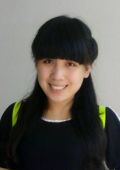 Yan Gong |
Yan Gong is a Master candidate in the School of Life Science and Technology, Xi'an Jiao Tong University, under supervision of Dr. Feng Xu. His primary project relates to cardiovascular diseases (CVDs), for e.g. heart diseases, brain vascular diseases and blood vessels diseases, that are the leading causes of death worldwide. Currently, he is interested in the development of lateral flow assays for detection of cardiac biomarkers, such as brain natriuretic peptide (BNP), myoglobin, cardiac troponin I (cTnI), cardiac troponin T (cTnT), etc. Yan will be converting to a PhD candidate and extend his research in the fall of 2015. His anticipation to the summer school would be acquiring knowledge and experience related to biological data mining and computation, which are highly beneficial to the exploration beneath the complexity in cardiovascular research. Apart from the academics, Yan enjoys reading, playing badminton, and spending time outdoors as pastimes. He wishes that, by participating this summer school, it will expand my interpersonal connection and horizon. |
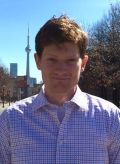 Trevor Hilton |
Trevor Hilton is currently studying as a Masters of Applied Science candidate (MASc) at The University of Toronto’s Institute of Biomaterials and Biomedical Engineering. He is studying signal processing and neural engineering. He is interested in extracting information from observable neural electrical activity so that from an engineering perspective, it can be put to good use. He received his Bachelor of Engineering (BEng) in 2014 from McMaster University in Electrical and Biomedical Engineering; it was there that he found his interest in signal processing and using the electroencephalogram (EEG) as a measurement tool to classify brain states. He has carried this interest into his current research, where, working in Dr. Bardakjian’s Cellular Bioelectricity Lab, he is investigating ways of using the EEG to aid individuals that suffer from epilepsy. |
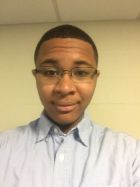 Christopher Hunt |
Christopher Hunt is a third-year biomedical engineering major at The Johns Hopkins University in Baltimore, Maryland, United States of America. Christopher grew up in Piscataway, New Jersey where, in high school, he ran on the track team and played trombone in the marching band. Ever since he was young, he knew he was interested in medicine. Currently, he has a major concentration in biomedical instrumentation and, as such, his coursework and research centers around medical device development, including topics such as biomedical robotics, sensor integration, and computer-integrated surgical systems. In particular, Christopher is very interested in the accelerated development of myoelectrically-controlled prostheses and the practicality of 3Dprinting in prototype development. |
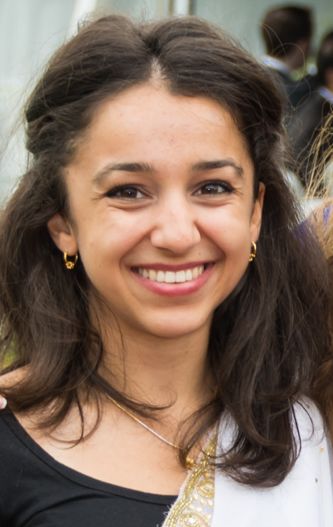 Devika Jain |
Devika Jain is currently a fourth-year Chemical Engineering student at the University of Toronto. She has done research under the supervision of Dr. Paul Santerre at the Institute of Biomaterials and Biomedical Engineering in the area of tissue engineering, specifically co-culture techniques for gingival tissue regeneration. She has won a national Chemical Engineering competition for her work in this field and will continue to pursue this line of research throughout her last undergraduate year. In addition to her research focus, Devika has also worked in the pulp and paper industry and has helped analyze and optimize high-yield mechanical pulp producing processes. She would eventually like to use her education and experience to improve healthcare in less accessible communities. In her spare time, Devika enjoys playing and coaching soccer, running, and edible chemistry. |
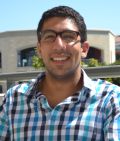 Mohamad Ali Najia |
Mohamad Ali Najia is a graduate of Georgia Tech with a BS degree in Biomedical Engineering. He is a published researcher, Goldwater Scholar, and held research fellowships at Harvard Medical School and the University of California Berkeley. He was previously the Editor-in-Chief of The Tower Undergraduate Research Journal and led the journal into the national spotlight. He initiated and fostered an article exchange program with the MIT Undergraduate Research Journal, and The Tower was accepted into the US Library of Congress under his leadership. Mohamad is currently the CEO and Co-founder of OculoStaple, a startup company creating surgical technologies to safely correct drooping eyelids. He is passionate about research and entrepreneurship to translate technologies from the benchtop to the clinic in order to improve patients’ quality of life. He was awarded the NSF Graduate Research Fellowship and will be starting a PhD in Medical Engineering and Medical Physics through the Harvard-MIT Health Sciences & Technology Program in the fall of 2015. |
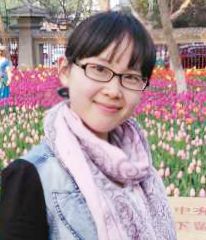 Han Liu |
Han Liu was born in Henan province of China, and is a PhD candidate under the supervision of Dr. Feng Xu at the Biomedical Engineering and Biomechanics Center(BEBC) of Xi’an Jiao Tong University. She is interested in colorful life science no matter animals or plants. Since joining BEBC, her research work mainly focuses on plant tolerance and resistance to biotic and abiotic stress. For example, plant leaves can manufacture toxins that deter microbial infection and herbivory by insects and other animals, and trichomes arise from the surface of plant leaves be considered to make a passive contribution to plant defense. Her research has found that trichomes act as mechanical triggers that can activate signals, help plant leaf evaluate and adjust to its environment. Han recevied her master degree in Beijing Forestry University 2013 and bachlor degree in Henan Normal University 2010. During her master degree, she worked with a group that found a new gene named CPD25 which can regulate chloroplast division. In her spare time, Han likes playing badminton and ping-pong, travelling and making new friends with interesting people. |
 Diane Nelson |
Diane Nelson, B.S. is a PhD candidate in Biomedical Engineering at Carnegie-Mellon University. There, under Dr. Keith Cook, PhD, she is developing a perfluorocarbon-assisted drug delivery system to aid in various lung injuries and diseases. In addition to these efforts, she is pursuing an M.S. in Colloids, Polymers, and Surfaces to develop a deeper understanding of the potential applications of perfluorocarbon emulsions. Diane aims to progressively demystify the cellular response to injury and wound healing. Her current research goes beyond basic treatment of lung injury, but extends the ability to control the chemical microenvironment of the alveolus or any body cavity. As of now, manipulations of blood chemistry is the only option to harbor any effect on the alveolus. She believes her novel approach allows manipulation of the alveolar milieu with infinite degrees of freedom: specific targeting of epithelium, fibroblasts, and fine tune manipulation of immune cells. Therefore, perfluorocarbon- assisted drug delivery has applications in several other pulmonary diseases like cystic fibrosis, asthma, and alveolar proteinosis. Diane has worked with several collaborators from University of Pittsburgh, University of Tennessee, and University of Michigan and has presented her work in several conferences. She has received Honorable Mention from NSF Graduate Fellowship and Ford Foundation Fellowship. She completed her undergraduate studies at Georgetown University in Mathematics, B.A. and at Columbia University in Biomedical Engineering, B.S. |
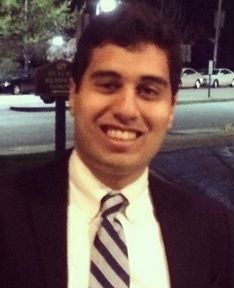 Arman Mohsen Nia |
Arman Mohsen Nia was born and raised in Iran where he received his high school diploma. He immigrated to the States and started his higher education at Pasadena City College, where he was also a visiting student at California Institute of Technology (Caltech). After finishing his first two years of college and working as an undergraduate research fellow at Caltech, he transferred to the Johns Hopkins University in 2013. Currently at Hopkins, Arman is a rising senior pursuing a bachelor of science in materials science and engineering with a concentration in applications of biomaterials in drug delivery and tissue engineering. He will be spending most of his senior year taking graduate level public health courses at the Bloomberg School of Public Health as a visiting student while finishing his engineering degree. He is interested in the unique contribution of interdisciplinary research in engineering and medicine, and is planning to pursue a MD/MPH degree after his undergraduate studies. Besides engineering, he serves on the executive board of several student clubs including the Engineering Honor Society, the Golden Key International Honour Society, and Society for Biomaterials. |
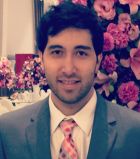 Arsalan Mohsen Nia |
Arsalan Mohsen Nia received his B.S. degree in Computer Engineering from Sharif University of Technology, Iran, in 2012, and M.A. degree in Electrical Engineering from Princeton, NJ, in 2014. He is currently pursuing a Ph.D. degree in Electrical Engineering at Princeton University, NJ. His research interests include biomedical sensors, smart micro-robots, biomedical applications of Internet of things, and continuos long-term health monitoring. |
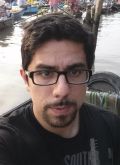 Jose Rios |
Jose Rios is originally from Mexico and moved to Phoenix, Arizona at a young age. He received his bachelor’s degree in bioengineering from Arizona State University. Jose is currently a fifth year biomedical engineering PhD candidate at Cornell University. He focuses on the synthesis of polymeric materials for drug delivery applications. He also received the Coleman Fellowship and the National Science Foundation Fellowship to support his PhD research. Outside of research, Jose enjoys rock climbing, soccer, and Latin dancing. Jose also teaches weekly dance lessons to the Cornell University community. |
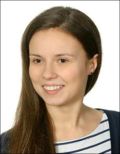 Patrycja Romaniszyn |
Patrycja Romaniszynis a second year student at the Silesian University of Technology Gliwice, Poland. She grew up in Belchatów, small town in the center of Poland, where she graduated from medical-profile High School. Even though she is a second year student, her career goals are pretty much defined. As a B.Sc. student she is getting more and more familiarized with analysis of biomedical signals. Thanks to this knowledge she will be finally able to obtain her B.Sc. degree in biomedical engineering. Next year Patrycja hopes to be able to enter a M.Sc. program at Department of Biosensors and Biomedical Signals Processing. Patrycja is interested in biomedical signals processing and in biomedical instrumentation. She likes sports, specially volleyball. She takes part in a lot of photo contests because photography is her second passion. |
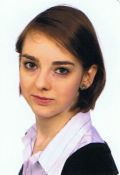 Anna Tamulewicz |
Anna Tamulewicz graduated from Biotechnology with major in Bioinformatics at the Silesian University of Technology (Gliwice, Poland) and is currently a fourth year PhD student in the field of Biocybernetics and Biomedical Engineering. She is doing her research at Faculty of Biomedical Engineering (Department of Biosensors and Biomedical Signals Processing) under the supervision of professor Ewaryst Tkacz. Her recent work involves the aid of digital signal processing methods in discovering energetically important amino acid residues in protein complexes. |
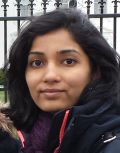 Kathak Vachhani |
Kathak Vachhani is a Master’s candidate in the Institute of Biomaterials and Biomedical Engineering at University of Toronto. She conducts her research in Orthopedics Biomechanics Lab under the supervision of Dr. Cari Whyne and Dr. Diane Nam. Her primary project relates to pre-clinical evaluation of drug candidates for enhancing healing of fractures in healthy and osteoporotic bone. Kathak received her Bachelors degree in Chemical Engineering at University of Toronto. Throughout undergraduate, she was involved in various projects related to cardiovascular research and won several awards for her work. In her spare time, Kathak enjoys playing badminton, swimming and spending time outdoors. |
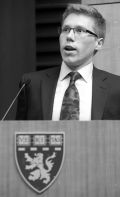 Michael Valic |
Michael Valic received his undergraduate degree from the University of Toronto in Engineering Science in 2013. He is currently in his second year in the Clinical Engineering Master's program at the Institute of Biomaterials and Biomedical Engineering working under the supervision of Prof. Gang Zheng and Dr. Marcus Bernardini. His research centres on the development of a radio-pharmaceutical kit to prepare parenteral quality injections of a multi-modal PET/fluorescence imaging agent. Michael's goal is to validate this imaging agent for the assessment of lymphatic disseminations in a "first-in-woman" clinical study of patients with advanced stage gyneacological cancers. Additionally, he is a part of a Toronto start-up exploring the novel use OCT imaging for permitting real-time pathological assessment of surgical margins in a clinical study with breast cancer patients. |
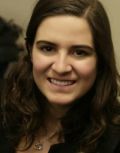 Amber Velasco |
Amber Velasco is a Junior majoring in Biomedical Engineer at Johns Hopkins University. She has enjoyed her years at Hopkins but is looking forward to graduating and begin working, hopefully in the field of rehabilitation engineering in order to further apply what she has learned during her undergraduate years. She intends to get a masters degree a few years following graduation, continuing her education as an engineer. As far as her hobbies go, she loves playing sports and visiting new countries. She has never been to Turkey and is looking forward to exploring a new place and getting to know and exchange ideas with the other participants. |
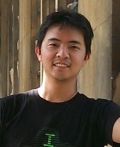 Yen-Hsiang Wang |
Yen-Hsiang Wang is a graduate student in Stanford bioengineering Ph.D. program with a minor in electrical engineering. He graduated from National Taiwan University with double majors in biology and electrical engineering, focusing on medical instruments and functional imaging. Since joining Stanford, he works in Prof. Christina Smolke’s lab, where Yen-Hsiang began to get interested in the idea of using genetic materials to regulate biological systems. He has designed and implemented a novel, general-purpose genetic device, which has been presented and awarded as best poster in the 13th International Conference on Systems Biology. He recently finished a research review article in the field of synthetic biology as a co-first author in Annual Review of Chemical and Biomolecular Engineering. Besides doing research, Yen-Hsiang also participates actively in different activities: including co-leading a team to win the Applied Material entrepreneurship competition, and working as a summer associate in McKinsey. He has also been awarded with the best TA mentor through helping improve the TA program in the department of bioengineering. |
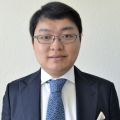 Sicong Yu |
Sicong Yu is a Ph. D student major in applied medical engineering from Royal Institute of Technology, Sweden. He received his M.S. degree in medical engineering from Royal Institute of Technology, Sweden, 2010, and B.S. degree in biomedical engineering from Xi'an Jiaotong University, China, 2007. His research interests are in nuclear imaging, image processing, and Monte Carlo simulation. |

